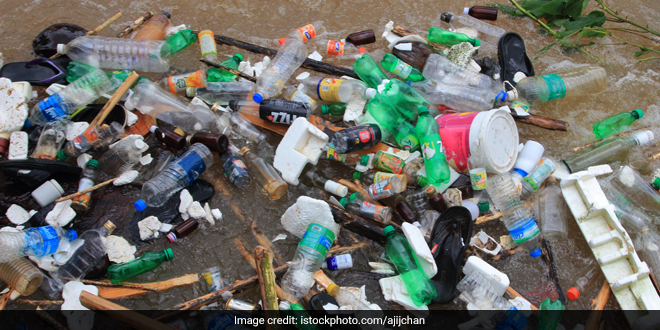New Delhi: The National Green Tribunal (NGT) has said that there is no proper mechanism for plastic waste management in the country and directed the Central Pollution Control Board (CPCB) to take necessary action in this regard. A bench headed by NGT Chairperson Justice Adarsh Kumar Goel said that mere issuance of directions by the CPCB is not adequate and compliance needs to be overseen. The tribunal said,
There is no proper mechanism for plastic waste management which was being dumped in open or burnt in brick kilns resulting in pollution. Action taken by the CPCB is the issuance of directions… Even with regard to the illegal import, CPCB as a statutory regulator can take up the matter with the authorities concerned.
The tribunal directed the CPCB to take further steps in the matter accordingly and file a report by e-mail before October 16. The CPCB had earlier informed the tribunal that the import of plastic waste must be restricted as the hazardous waste generated in the country is to the extent of 26,000 tonnes a day and the same is not properly managed. The Plastic Waste Management Rules, 2016, as amended in 2018, prohibit open burning of plastic waste and permit its recycling only if it conforms to Indian Standard: IS 14534:1998, it said.
The tribunal was hearing a plea filed by one Amit Jain, who alleged that cheap waste paper and road sweep waste is imported from the US, Europe among others, for burning in brick kilns, causing land and air pollution. The please said,
Large plastic waste yards can be seen near recycled paper mills. Import of cheap waste paper is hazardous and is affecting the environment. The import is to the extent of 9,00,000 tons of waste which generates hazardous plastic.
Also Read: National Green Tribunal Orders Probe On A Plea Highlighting Dangers Of Plastic Food Packaging
NDTV – Dettol Banega Swachh India campaign lends support to the Government of India’s Swachh Bharat Mission (SBM). Helmed by Campaign Ambassador Amitabh Bachchan, the campaign aims to spread awareness about hygiene and sanitation, the importance of building toilets and making India open defecation free (ODF) by October 2019, a target set by Prime Minister Narendra Modi, when he launched Swachh Bharat Abhiyan in 2014. Over the years, the campaign has widened its scope to cover issues like air pollution, waste management, plastic ban, manual scavenging and menstrual hygiene. The campaign has also focused extensively on marine pollution, clean Ganga Project and rejuvenation of Yamuna, two of India’s major river bodies.






























